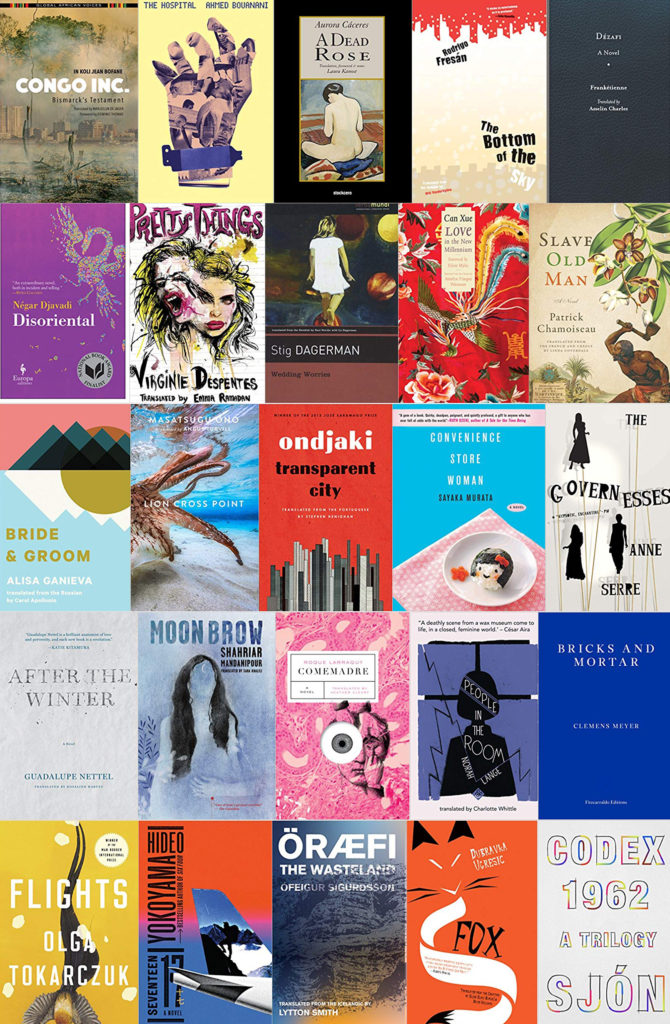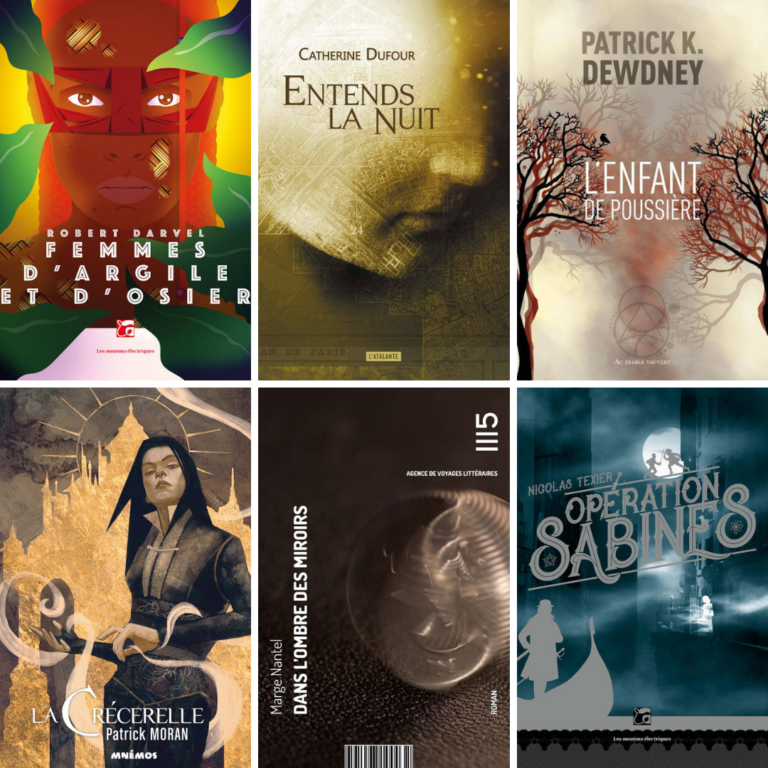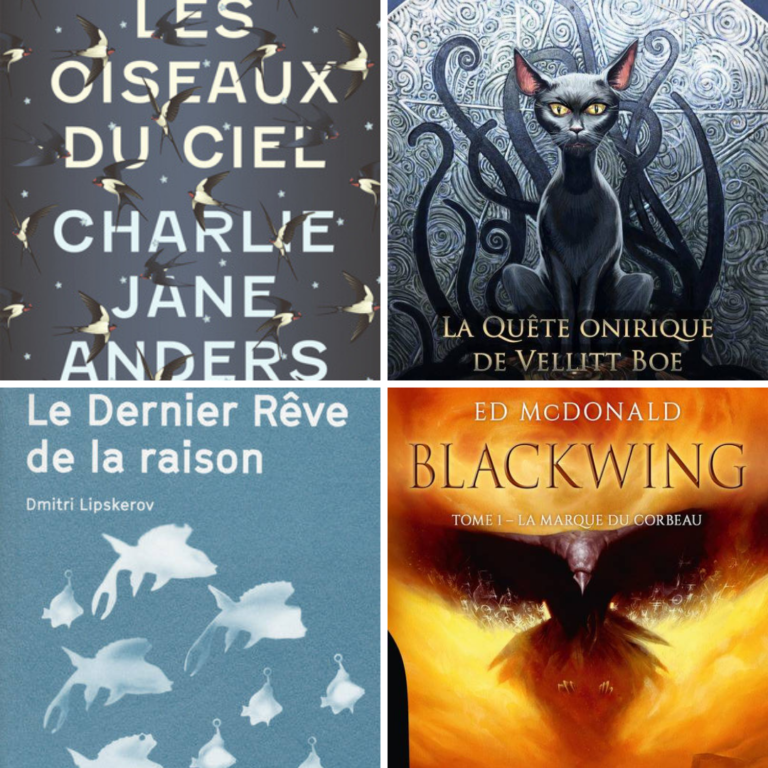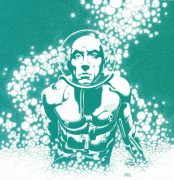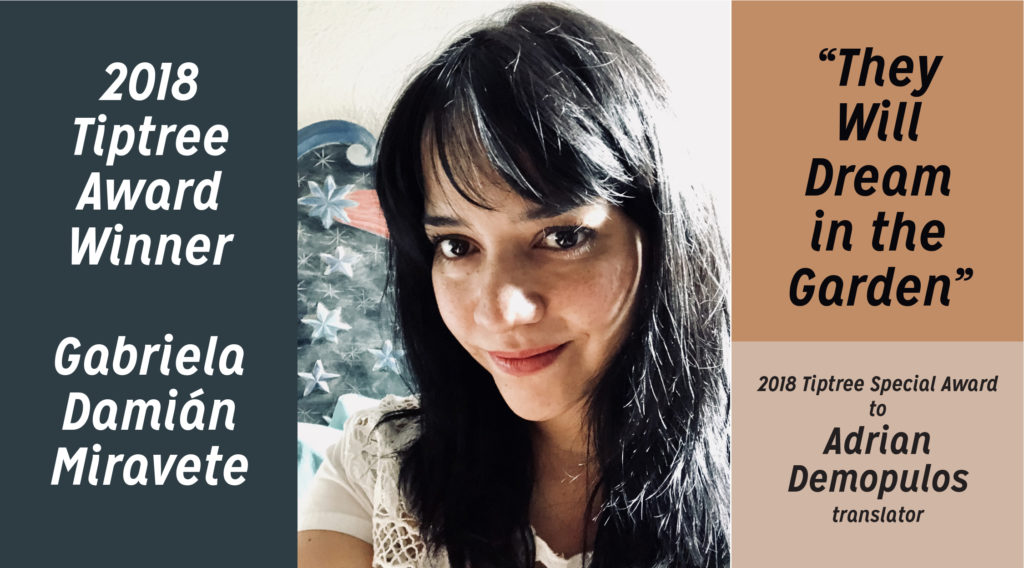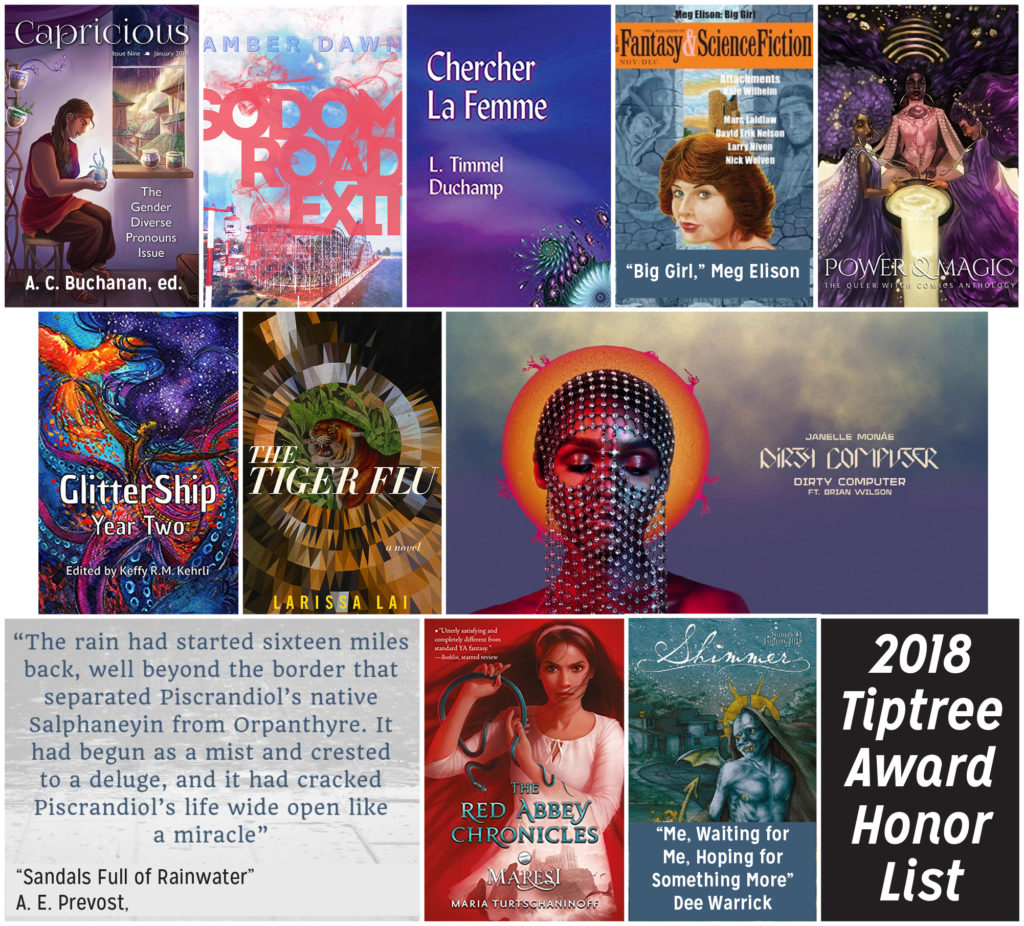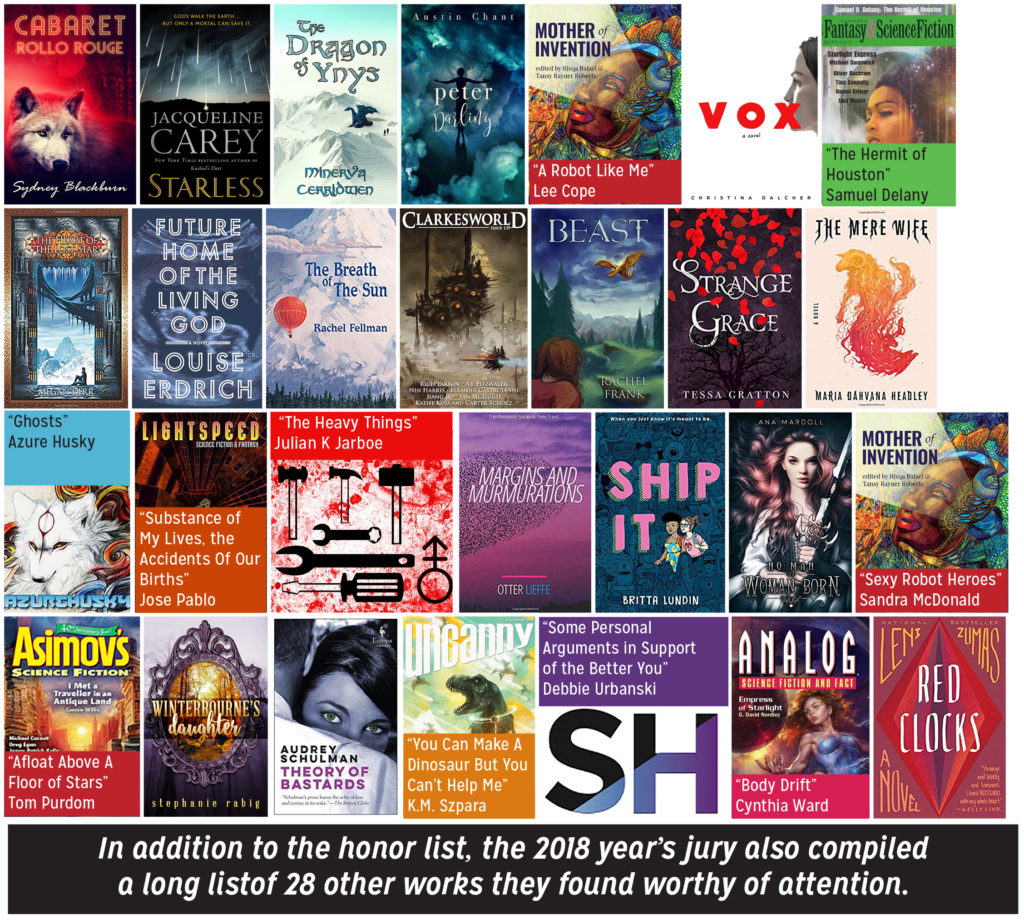(1) FUTURE TENSE. This month’s entry in the Future Tense Fiction series is “The Song Between Worlds” by Indra Das, author of the award-winning novel The Devourers.
Each month, Future Tense Fiction—a series of short stories from Future Tense and ASU’s Center for Science and the Imagination about how technology and science will change our lives—publishes a story on a theme. The theme for April–June 2019: space settlement.
It was published along with a response essay “What Would Sound Be Like on Mars?” by the astronomer Lucianne Walkowicz of the Adler Planetarium.)
… Sound is a relatively simple physical phenomenon, but the way our minds shape it can be complex. It’s a wave, but not the same kind of wave one might see in the ocean, where the medium (water, in the case of the ocean) travels toward or away from us. If sound waves were like ocean waves, we would not be able to speak to one another without blowing a constant breeze toward the listener, which is (generally speaking) not what happens. Rather, sound waves travel by creating collisions between the molecules of air between us and the origin of the sound….
(2) SURVEILLANCE STATE. In The Atlantic, Lily Meyer reviews “Two ambitious new novels build techno-futures in which surveillance offers disturbing new threats” — “Science Fiction’s Preoccupation With Privacy”.
…The only character in Dark Constellations not interested in controlling others is Piera, a disaffected Stromatoliton biologist whose alienation from her male co-workers and from the overreach of her company leads her to cut herself off—from people, and from broader systems. She privately refers to her employer as “the animal of the state unleashed,” but remains at Stromatoliton, satisfying her voyeuristic curiosity even as the future of Argentine privacy is in question. With Piera, Oloixarac seems to underscore the impossibility of stepping away from power in a world in which science overrides ethics. Piera may consider herself an observer rather than a participant, but she remains complicit in the global expansion of surveillance….
(3) BRIANNA WU. Media people covering last weekend’s synagogue shooting in San Diego tapped Brianna Wu for comment about the shooter’s 8chan connection.
…Whether the Internet is creating hate groups or just serving as a gathering place, one thing has become clear: What happens online doesn’t stay there.
Brianna Wu is a software engineer who lives in Massachusetts. In 2014, she was targeted in something called Gamergate, in which men threatened female video game players and developers. The harassment started mainly on 8chan.
“They threw bricks through my windows. They sent me hundreds upon hundreds of death threats, rape threats,” Wu says. “I’ve had people from 8chan follow me around just to let me know, ‘I’m near you and could hurt you if I wanted to.’ “
Wu, who is running for Congress, says the solution is simple. “We need dedicated FBI agents that understand online culture to look at these kinds of extreme crimes and prosecute them,” she says.
- Wu was quoted even more extensively in the Washington Post story “The Technology 202: California synagogue shooting puts fringe site 8chan in spotlight”.
…The message is trickling to the campaign trail. Brianna Wu, a software engineer who is running as a Democrat for a House seat in Massachusetts, told me she is “angry” that law enforcement has not done more to rein in 8chan, which has also been connected to the circulation of child pornography and is a place where people are frequently doxxed.
After Wu herself was targeted on the website in 2014 with death threats during the Internet culture war known as Gamergate, she says she says she documented “tons of illegal activity” on 8chan and shared her findings with the FBI. She believes it’s possible the recent shootings could have been avoided if law enforcement took greater action, she said, and wants to increase funding for the FBI to investigate online crime if elected to Congress.
“We need to fund a specific task force within the FBI that is very tech literate and tasked to prosecute these types of online crimes,” she said. More from Wu:
(4) CAMERAS ROLL ON PICARD. They’ve begun to “Make it so” — “Star Trek: Patrick Stewart’s Picard TV Show Starts Filming” at ScreenRant.
With a mix of old and newcomer talent on both sides of the camera, the Picard series looks to follow in Discovery‘s footsteps and blend old-fashioned Star Trek tropes with fresh sci-fi ideas and a more modern tone. Of course, this show has an advantage over CBS All Access’ first Star Trek series in that it’s not a prequel and has more freedom to play around with its storytelling, as opposed to having to work around classic lore and mythology. Something like the Star Wars sequel trilogy has certainly gotten a passionate fan response by bringing back old characters for new adventures, so it’ll be very interesting to see how Trekkies take to Picard’s story continuing by comparison.
(5) CARL BRANDON ORIGIN STORY. The Jeanne Gomoll-edited Carl Brandon, by and about the hoax fan Terry Carr co-created long ago, is available for order from Lulu ($16.00).
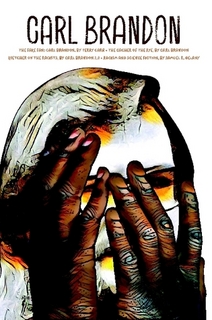
Terry Carr recounts the invention of an imaginary black science fiction fan named Carl Brandon, one of the field’s most (in)famous hoaxes. In addition to Carl Brandon’s complete history, this volume includes his J.D. Salinger parody, “The Cacher of the Rye;” a more current parody by Carl Brandon 2.0, “The Kvetcher on the Racists;” and an essay by Samuel R. Delany, “Racism and Science Fiction.” To quote Carr: “In the late fifties, several of the fans of the Bay Area…presented fandom with a new fanwriter who was quickly acclaimed as one of the best writers around and who was, not incidentally, the first prominent fan who was black.” Read the book for more of this fascinating tale. All proceeds go to the Carl Brandon Society, which promotes discussions on race at conventions and conferences, and through its support of the Parallax and Kindred literary awards, and the Octavia E. Butler Memorial Scholarship Fund.
(6) JOHN SLADEK. The paperback edition of New Maps: The Uncollected John Sladek was informally launched at the UK Eastercon and the promised ebook is now available reports David Langford. Both can be ordered from Ansible Editions. Trade paperback 9″ x 6″, 255pp, ISBN 978-0-244-15877-4. $20 plus local postage from Lulu.com: click button below. Ebook in the usual formats at £5.50: again, click button below.
(7) FREE DOWNLOAD. Of more fannish interest, a free ebook reissue of Terry Carr’s 1986 collection Fandom Harvest has been posted on David Langford’s TAFF page as an incitement to give generously to the fund. He adds, “Many thanks to Bob Silverberg for allowing his 1986 introduction to be included and to the original publisher John-Henri Holmberg for his afterword and general approval. Carol Carr has given her blessing to this reissue.”
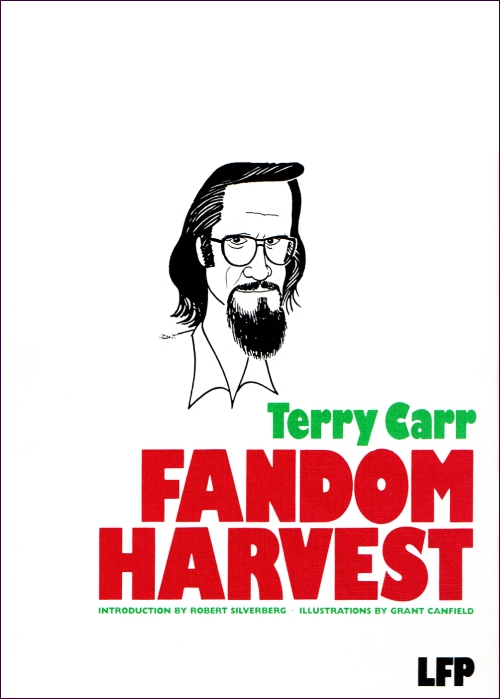
Langford further notes – “For anyone interested in acquiring the Sladek or the Brandon paperback: both are published via Lulu.com, which currently has a 15%-off discount code ONEFIVE that’s good until 2 May.”
(8) HARLEQUIN ART. The Bristol Board features nine pieces of Steranko art done for an edition of a Harlan Ellison story.
Repent Harlequin, said the Tick-Tock Man!, a portfolio of illustrations by Jim Steranko, done as an adaptation of a short story that was written by Harlan Ellison. the last plate is a 3-D pinup.
(9) TODAY’S BIRTHDAYS.
[Compiled by Cat Eldridge.]
- Born May 1, 1905 — Edna Mayne Hull. Wife of A.E. van Vogt. And yes, she too wrote genre fiction. Her initial sale, “The Flight That Failed”, appeared in the November 1942 issue of Astounding Science Fiction under chosen author credit of “E.M. Hull” though eventually she used her own name. She has but one novel of her own, Planets for Sale, and one with her husband, The Winged Man, and only a dozen stories, one with A.E. Van Vogt & James H. Schmitz. (Died 1975.)
- Born May 1, 1924 — Terry Southern. Screenwriter and author of greatest interest for the screenplay from Peter George’s original novel, Two Hours to Doom (as by Peter Bryant) of Dr. Strangelove Or: How I Learned to Stop Worrying and Love the Bomb directed (and in part written) by Stanley Kubrick. He was also involved in scripting Barbarella. (Died 1995.)
- Born May 1, 1946 — Joanna Lumley, 73. No, she was no Emma Peel, but she was definitely more than a bit appealing in the New Avengers as Purdey. All twenty-six episode are out on DVD. Her next genre out was Sapphire & Steel whichstarred David McCallum as Steel and her as Sapphire. Skip forward nearly near twenty years and find her playing The Thirteenth Doctor in The Curse of Fatal Death in Comic Relief special.
- Born May 1, 1948 — Terry Goodkind, 71. You obviously know he is. I’ve read some of the Sword of Truth series. It’s ok, but not really my cup of Earl Grey Tea Hot. Epic fantasy isn’t something that I really read a lot of to be honest preferring epic sf instead.
- Born May 1, 1952 — Andrew Sawyer, 67. Librarian by profession, critic and editor as well who an active part of fandom. He is the Reviews Editor for Foundation: The International Review of Science Fiction. I’ve also got him doing Upon the Rack in Print, a book review column in Interzone and elsewhere and contributing likewise the Rust Never Sleeps column to Paperback Inferno as well. He hasn’t written much fiction, but there is some such as “The Mechanical Art” in the Digital Dreams anthology.
- Born May 1, 1955 — J. R. Pournelle, 64. That’s as in Jennifer, the daughter of the Jerry we know. She’s here because she wrote Outies (Mote Series Book 3) which I confess she sent me a digital galley of years ago but I still need to take a look at. The first novel in the series is great.
- Born May 1, 1956 — Phil Foglio, 63. He won the Best Fan Artist Hugo Award in 1977 and 1978. He later did work for DC, First and Marvel Comics including the backup stories in Grimjack. He and his wife are responsible for the exemplary Girl Genius, a three-time Best Graphic Story Hugo winner.
- Born May 1, 1957 — Steve Meretzky, 62. He co-designed the early Eighties version of The Hitchhiker’s Guide to the Galaxy video game with the full participation of Douglas Adams. SF Encyclopedia notes that he did also a space opera themed game, Planetfall and its sequel A Mind Forever Voyaging in the Eighties as well. He also did the definitely more erotic Leather Goddesses of Phobos as well.
(10) DC WOULDN’T HAVE NEEDED A SEQUEL. On CBR.com, Vivian Achieng thinks MCU characters are relatively wimpy and there are at least “25 DC Characters That Are More Powerful Than Thanos.”
When we talk about the MCU blockbuster, Avengers: Infinity War, we cannot fail but mention the wrecking ball that was Thanos, and his infinity gauntlet of course. For the very first time, earth’s mightiest heroes, The Avengers, look to have met their match. All their powers, tech and a snarky Star-Lord were not powerful enough to stop Thanos’ crusade to save the universe. Fingers crossed for Captain Marvel. The superheroes of the Marvel Cinematic Universe can appear to be underpowered compared to other superheroes. This isn’t a knock on Captain America or Iron Man or the rest, but they don’t compare characters from other franchises. If characters from other universes happened to show up in Infinity War, we think the fight against Thanos would have ended a tad differently. In fact, some wouldn’t even need the support of the Avengers and could take the Mad Titan out all on their own.
Granted, Thanos is not an easy walk over. Without the Infinity Gauntlet, he is as strong or stronger than Thor with fair speed to match, he is pretty much indestructible, and has scientific knowledge greater than anyone on Earth, which in turn makes him a master strategist. He also has access to cosmic power which he can use to release blasts from his hands and eyes. With the Infinity Gauntlet, however, he can manipulate all of reality, time, space and the minds and souls of others. He looks pretty unbeatable, right? Wrong! Here is a list of 25 characters from Marvel’s arch enemies, DC, which can very well handle the threat that is Thanos….
(11) RIPLEY! BELIEVE IT OR NOT. “Sigourney Weaver surprises high school cast of Alien: The Play” – CNET has the story.
… “I’m so excited to be here,” Weaver told them. “I’m representing all the Alien fans from all over the universe … I think what you’re doing is so cool and so important.”
Another video shows one high school student yelling, “I love you, you’re my childhood hero! I can’t believe you’re here right now!” before hugging Weaver.
The whole play is online –
(12) SFF IN TRANSLATION. Rachel Cordasco’s “Love in the New Millennium [Why This Book Should Win]” is one in a series of thirty-five posts about every title longlisted for the 2019 Best Translated Book Awards.
Love in the New Millennium by Can Xue, translated from the Chinese by Annelise Finegan Wasmoen (Yale University Press)
Love in the New Millennium is a work of operatic magical realism; a book with many layers, many shifting romantic relationships, and no clear plot. Like Frontier, one of Can Xue’s previous novels, Love invites us into the hazy, sometimes frustratingly-elusive worlds of a handful of characters, many of whom are desperately trying to find a “home.”…
(13) CHALLENGE FOR THE WIKIPEDIA. UnDark discusses “What a Deleted Profile Tells Us About Wikipedia’s Diversity Problem”
You’ve probably never heard of Clarice Phelps. If you were curious, you might enter her name into Google. And, if you had done so anytime between September of last year and February of this year, you would likely have found her Wikipedia entry. The nuclear scientist is thought to be the first African-American woman to help discover a chemical element; she was part of the Oak Ridge National Laboratory team that purified the radioactive sample of berkelium-249 from which the new element, tennessine, was created. But on February 11, 2019, in the middle of Black History Month and on the International Day of Women and Girls in Science, Phelps’s page was deleted. The optics, as they say, weren’t good.
The deletion came after a brief but intense dispute between Wikipedia contributors over whether Phelps met the site’s criteria for notability. Ordinarily, such editorial spats are considered a feature of the crowdsourced encyclopedia, not a bug. If one of the site’s hundreds of thousands of active contributors mistakenly or purposely adds incorrect information, the wisdom of the crowd will ensure that truth prevails.
But in the case of Phelps, the crowd made the wrong call, and the site’s rules facilitated that. The entire spectacle revealed just how much work remains to be done to address the systemic biases that disproportionately keep women and people of color out of Wikipedia’s pages.
(14) UNLIKELY STEPS. Scoffers can’t believe the discovery, or that military authorities tweeted about it — “‘Yeti footprints’: Indian army mocked over claim”.
The Indian army has claimed to have found footprints of the yeti, sparking jokes and disbelief on social media.
The army tweeted to its nearly six million followers on Monday that it had discovered “mysterious footprints of mythical beast ‘Yeti’ at the Makalu Base Camp [in the Himalayas]”.
(15) IT BITES. CNN’s AJ Willingham says “The ‘Sonic the Hedgehog’ trailer is out and people are having visceral reactions to it”.
People are weird about teeth, and always have been. According to dental researcher Rosemary Wells, ancient cultures had a variety of ways of dealing with baby teeth, as described in her essay “The Making of an Icon: The Tooth Fairy in North American Folklore and Popular Culture:”
(1) the tooth was thrown into the sun; (2) thrown into the fire; (3) thrown between the legs; (4) thrown onto or over the roof of the house, often with an invocation to some animal or individual; (5) placed in a mouse hole near the stove or hearth or offered to some other animal; (6) buried; (7) hidden where animals could not get it; (8) placed in a tree or on a wall; and (9) swallowed by the mother, child or animal.
That’s right, people have historically been so freaked out by teeth they used to THROW THEM INTO THE SUN. Dental anxiety is real! You can’t just stick a full set of veneers in any old cartoon character and expect people to not be traumatized!
(16) PTERRY WEEPS. Chip Hitchcock advises a trigger warning should accompany BBC’s video: “Leuser rainforest: Baby orangutans rescued from Indonesia’s pet trade”.
Baby orangutans on the island of Sumatra are being captured and sold as pets, but charities are working to rescue the animals and confront the owners.
(17) HIGH-PRICED COLLECTIBLE. “Star Wars Bib Fortuna toy prototype sells for £36k” – BBC has the story.
A prototype of a Star Wars toy has sold for £36,000 at auction.
The 1980s master model of Bib Fortuna, a male Twi’lek who lived on Tatooine, had an estimate of £12,000.
It sold at Thornaby-based Vectis Auctions along with prototypes of an ewok called Logray which fetched £12,000, and an Emperor’s royal guard which reached £28,800.
Auctioneer Kathy Taylor said the three “relatively unknown” characters had “beaten all expectations”.
They had been made in America by Kenner for the production of the toys in Europe by Palitoy, which was based in Coalville, Leicestershire.
…Ms Taylor said the master models are larger and more detailed than the final figures sold in toy shops.
(18) RESISTANCE. Season 3 of The Handmaid’s Tale arrives June 5 on Hulu.
[Thanks to Martin Morse Wooster, Joey Eschrich, Andrew Porter, Carl Slaughter, Mike Kennedy, Chip Hitchcock, JJ, Cat Eldridge, and John King Tarpinian for some of these stories. Title credit goes to File 770 contributing editor of the day Andrew.]


